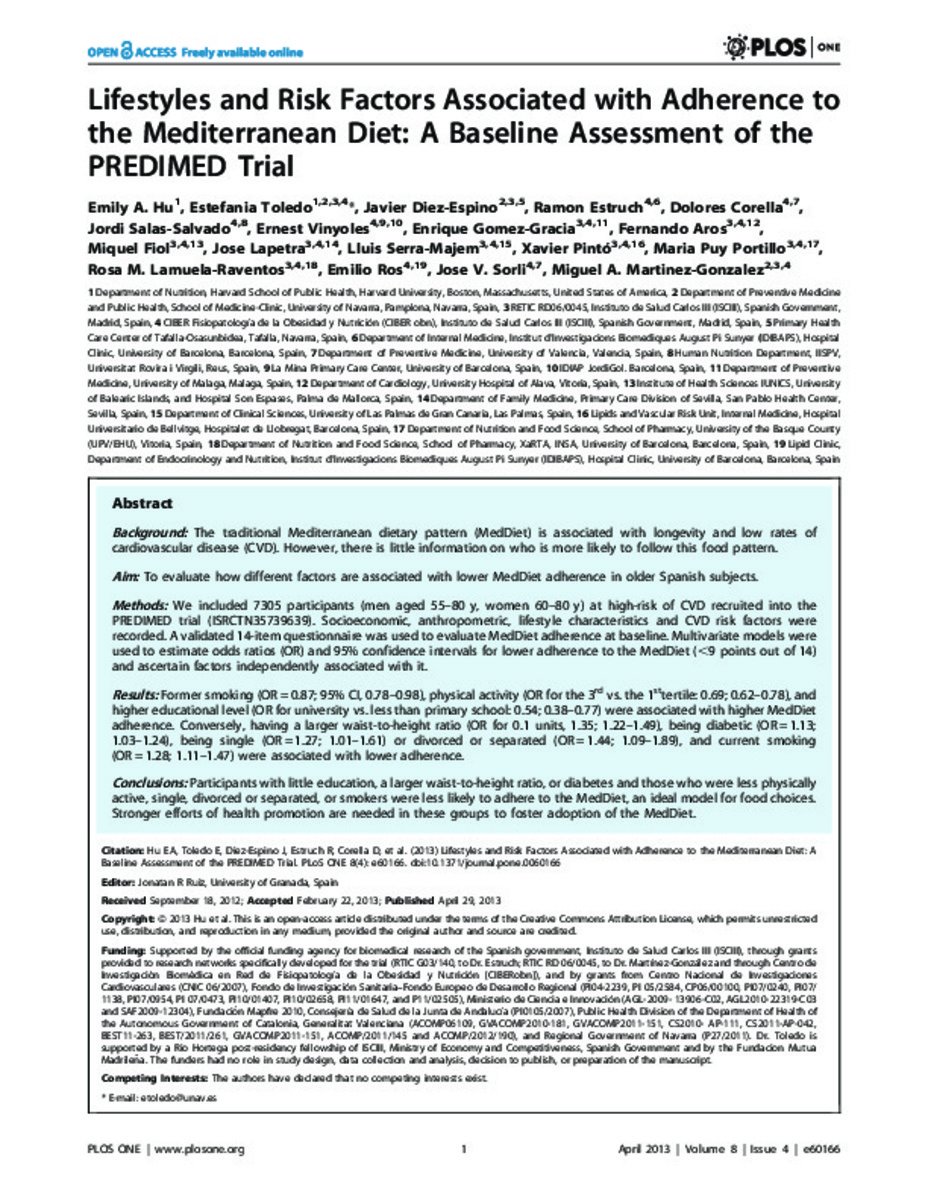Lifestyles and risk factors associated with adherence to the Mediterranean diet: a baseline assessment of the PREDIMED trial
Keywords:
Mediterranean diet
Lifestyle
Dietary pattern
PREDIMED study
Risk factors
Publisher:
Public Library of Science
Citation:
Hu EA, Toledo E, Diez-Espino J, Estruch R, Corella D, Salas-Salvado J, et al. Lifestyles and Risk Factors Associated with Adherence to the Mediterranean Diet: A Baseline Assessment of the PREDIMED Trial. PLoS One 2013 Apr 29;8(4):e60166.
Statistics and impact
0 citas en

0 citas en

Items in Dadun are protected by copyright, with all rights reserved, unless otherwise indicated.








